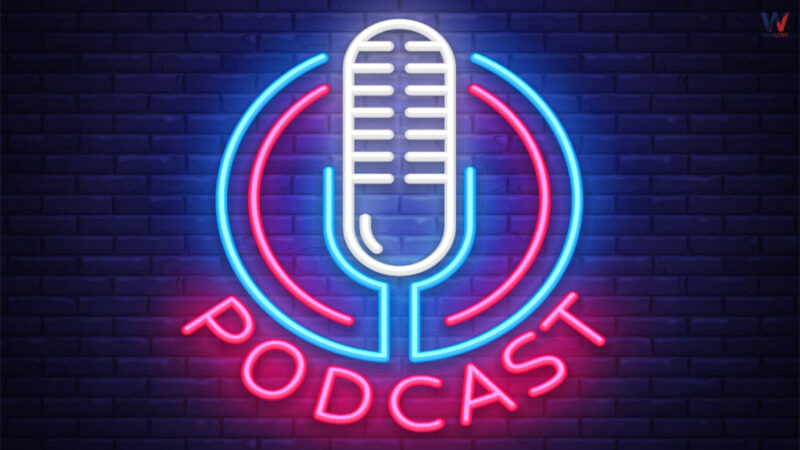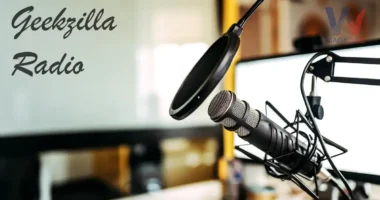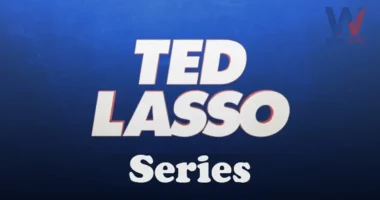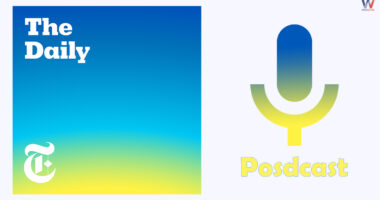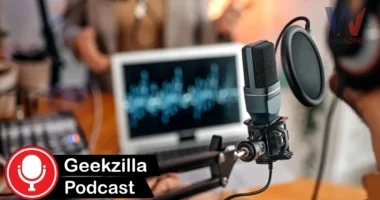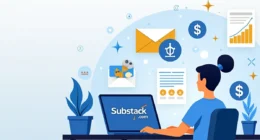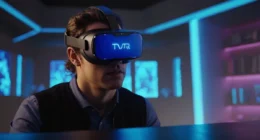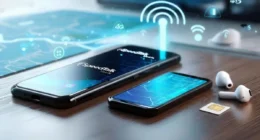Table of Contents
A podcast is a digital program that you can download from the Internet and listen to it whenever you want. It’s typically an episodic series of audio files that you can play on your personal device. While most podcasts are audio-only some also include video content.
A podcast series often has one or more regular hosts who talk about specific topics or current events. The content can be scripted or completely improvised. Podcasts mix creative sound production with themes that range from scientific research to everyday stories. Many podcasts also have a website with links, notes, guest information, transcripts, extra resources, commentary and sometimes a community forum for listeners to discuss the show’s content.
Podcasts are usually inexpensive for listeners, with many being free to download. Some podcasts are funded by companies or sponsors and include ads. Others make money through paid subscriptions, ads or selling products. Since podcast content is often free, it challenges traditional revenue models.
Podcasting involves creating and sharing audio files via RSS feeds to subscribers’ devices. Podcasters usually use a hosting service like SoundCloud or Libsyn to do this. These hosting companies then distribute the audio files to streaming platforms like Apple and Spotify where users can listen on their phones or digital devices.
As of May 2024 latest updates by Wordle Magazine, there are about 4.18 million podcasts worldwide. It’s estimated that there will be around 504.9 million podcast listeners globally in 2024. In the United States, 62% of people have listened to a podcast.
“Among these millions of podcasts, you can learn about the top business podcasts, incase, if you are a business enthusiast.”
Etymology
“Podcast” is a combination of “iPod” and “broadcast.” The term was first used by Ben Hammersley, a columnist for The Guardian and a BBC journalist, in February 2004 while writing an article for The Guardian.
In September 2004, the audioblogging community started using it, thanks to Danny Gregoire, who shared it with the iPodder-dev mailing list. Podcaster Adam Curry then popularized it. Although the word comes from “iPod,” podcasts can be accessed on any device that can play media files. The term “podcast” was used before Apple added podcasting features to the iPod and iTunes software.
History
In September 2000, the early MP3 player company i2Go launched MyAudio2Go.com, a service that let users download news stories to listen to on a PC or MP3 player. This service lasted about a year until i2Go shut down in 2001.
In October 2000, Tristan Louis proposed the idea of attaching sound and video files to RSS feeds. Dave Winer, a software developer and one of the creators of the RSS format, implemented this idea.
Podcasting, once a little-known way to share audio content, has become a well-known method for distributing audio, whether for business or personal use. Podcasts are similar to radio shows but are audio files that listeners can play whenever and wherever they want.
The first application that made podcasting feasible was iPodderX, created by August Trometer and Ray Slakinski. By 2007, audio podcasts were doing what radio broadcasts had done since the 1930s such as airing talk shows and news programs. This change was driven by better internet capabilities and cheaper, more accessible audio recording and editing tools.
Adam Curry started his show, Daily Source Code, in August 2004. This show covered his daily life, news and discussions about podcasting, promoting new podcasts as well. Curry used the show to test podcasting software and help develop the medium. He named it Daily Source Code to attract tech enthusiasts. Initially, it was aimed at podcast developers, who then started creating their own podcasts and improving the podcasting software. As people saw how easy it was to make podcasts, a community of early podcasters quickly formed.
In June 2005, Apple released iTunes 4.9 which included built-in support for podcasts. This made it easier and more convenient for users to download and transfer podcasts to their mobile devices without needing a separate program. However, this also slowed down the development of podcast applications by independent developers. Additionally, Apple sent cease and desist orders to many podcast app developers and service providers who used the terms “iPod” or “Pod” in their product names.
The ease and affordability of starting and maintaining a podcast remain key factors in its popularity. Creators typically need just a microphone, a computer or mobile device and editing software. Many also use acoustic treatments to enhance sound quality. The strong connections that podcast creators build with their audiences contribute to the medium’s sustained growth and engagement.
Despite its rapid growth, the podcasting industry still generates relatively modest revenue compared to other media. However, the increasing number of listeners indicates a steady rise in its influence and reach. The form’s low production costs and the intimate relationship between creators and listeners continue to drive the podcasting phenomenon forward.
IP Issues in Trademark & Patent Law
Trademark Applications
Between February 10 and March 25, 2005, Shae Spencer Management, LLC from Fairport, New York, filed a trademark application to register the term “podcast” for an “online prerecorded radio program over the internet.” On September 9, 2005, the United States Patent and Trademark Office (USPTO) rejected the application.
The company tried to amend their application in March 2006 but the USPTO rejected it again, stating it was not sufficiently different from the original. By November 2006, the application was marked as abandoned.
Apple Trademark Protections
On September 26, 2004, it was reported that Apple Inc. began to take legal action against businesses using “POD” in their product or company names. That week, Apple sent a cease and desist letter to Podcast Ready, Inc., which markets an application called “myPodder.” Apple’s lawyers argued that the term “pod” was widely recognized by the public as referring to Apple’s music player and therefore, it was covered by Apple’s trademark.
This move was seen as part of a larger effort by Apple to expand the scope of its iPod trademark including trademarking “IPOD,” “IPODCAST” and “POD.” On November 16, 2006, Apple’s Trademark Department clarified that Apple does not object to third-party use of the term “podcast” to refer to podcasting services and that Apple does not license the term. However, they did not state whether Apple believed it had trademark rights to the term.
Personal Audio Lawsuits
Personal Audio, often called a “patent troll” by the Electronic Frontier Foundation (EFF), filed a patent on podcasting in 2009, claiming it was invented in 1996. In February 2013, Personal Audio began suing well-known podcasters for royalties including The Adam Carolla Show and the HowStuffWorks podcast.
In October 2013, the EFF filed a petition with the US Patent Office to invalidate Personal Audio’s patent. On August 18, 2014, the EFF announced that Adam Carolla had settled with Personal Audio. Finally, on April 10, 2015, the US Patent and Trademark Office invalidated five parts of Personal Audio’s podcasting patent.
Production & Listening
A podcast generator keeps a central list of files on a server as a web feed, accessible through the Internet. Listeners use special software called a podcast client on their computer or media player to access this feed, check for updates and download new episodes. This process can be automated, making it feel like new episodes are being “pushed” to the listeners. Podcast files can be stored on the user’s device or streamed directly.
There are various mobile apps that let people follow and listen to podcasts. These apps often allow users to download episodes or stream them on demand. Most podcast players let listeners skip parts of the podcast and control the playback speed. Many people listen to podcasts while commuting but due to travel restrictions during the COVID-19 pandemic, the number of unique listeners in the US dropped by 15% in the last three weeks of March 2020.
Podcasting is considered a merged medium because it brings together audio, the web and portable media players. It’s also considered a disruptive technology that has led people in radio broadcasting to rethink their traditional methods and views on audiences, consumption, production and distribution.
Podcasts can be produced at little to no cost and are usually distributed for free, unlike traditional media that often require expensive production tools and gatekeeping. However, podcasters can still make money by selling ad time to companies or by getting support from listeners through crowdfunding sites, which offer special content and extras to paying subscribers.
Types
Podcasts come in different styles, formats and topics. While they take some inspiration from older media types, they also have unique characteristics that can be seen through computational analysis. The rules and trends guiding podcast variations are still developing and can change over time and in different markets. Podcast listeners have various preferences but there aren’t yet established conventions for addressing these preferences or discussing them.
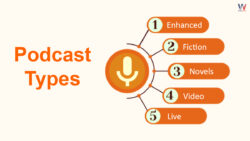
Here are some current examples of podcast types, but this list will likely evolve as new content types, technologies and use cases appear.
Enhanced Podcasts
An enhanced podcast or slidecast, combines audio with a slideshow presentation. It’s like a video podcast but uses presentation software to create the images and sequence them separately from the audio recording. According to sources like The Free Dictionary, YourDictionary and PC Magazine, an enhanced podcast is “an electronic slideshow delivered as a podcast.” These podcasts include graphics and chapters. In 2012, iTunes introduced an enhanced podcast feature called “Audio Hyperlinking” which they patented. Enhanced podcasts are useful for businesses and education and can be made using QuickTime AAC or Windows Media files. They were first used in 2006.
Fiction Podcast
A fiction podcast, also known as a “scripted podcast” or “audio drama” is like a radio drama but in podcast form. It tells a fictional story over multiple episodes and seasons, using voice actors, dialogue, sound effects and music to enhance the narrative. Well-known actors like Demi Moore and Matthew McConaughey have lent their voices to fiction podcasts. Major content producers like Netflix, Spotify, Marvel Comics and DC Comics have also created fiction podcasts. Unlike other genres, fiction podcast downloads increased by 19% early in the COVID-19 pandemic.
Podcast Novels
A podcast novel, also known as a “serialized audiobook” or “podcast audiobook” combines elements of a podcast and an audiobook. Like a traditional novel, it is a work of literary fiction but is recorded in episodes and delivered online over time. These episodes can be automatically received via RSS or accessed through a website, blog or other methods. Episodes may be released on a regular schedule, like once a week or irregularly as they are completed.
Similar to audiobooks, some podcast novels are narrated with sound effects and multiple voice actors for different characters much like a radio play or scripted podcast. However, many have a single narrator and few or no sound effects.
Some podcast novelists offer a free podcast version of their book as a promotional tool. Sometimes, this strategy helps them secure publishing contracts to print their novels. By podcasting their books, these authors can build an audience even if they can’t initially get a publisher. This audience can then help them get a publishing deal later on. The exposure from releasing a free podcast often compensates for giving away their work for free, according to these novelists.
Video Podcasts
A video podcast features video content. Web television series are often shared as video podcasts. An early example is “Dead End Days” a serialized dark comedy about zombies, which ran from October 31, 2003, through 2004 and is often considered the first video podcast.
Live Podcasts
Some podcasts are recorded in front of a live audience, either entirely or for special episodes. Selling tickets to these events provides podcasters with an extra way to make money. Some podcasts create special live shows to tour which may not be included in their regular podcast feed. Events like the London Podcast Festival and SF Sketchfest often feature live podcast performances. Covering the Geek culture, Geekzilla Podcast is the best example of live podcast.
Technology
Software
Podcast episodes are usually stored and encoded in the MP3 digital audio format and hosted on web servers. They are shared across various websites and platforms using RSS feeds which are XML-formatted files that provide information about the episode and the podcast.
Hardware
The basic equipment needed for a podcast includes a computer and a microphone. A sound-proof room and headphones can be helpful. The computer should have a recording or streaming application installed. Common microphones for podcasting connect via USB. If there are two or more people on the podcast, each person needs a microphone and a USB audio interface is required to mix them together. For video podcasts or livestreaming, a separate webcam and additional lighting might be needed.
“Great stories happen to those who can tell them, and a podcast is a fantastic way to share those stories with the world.”
